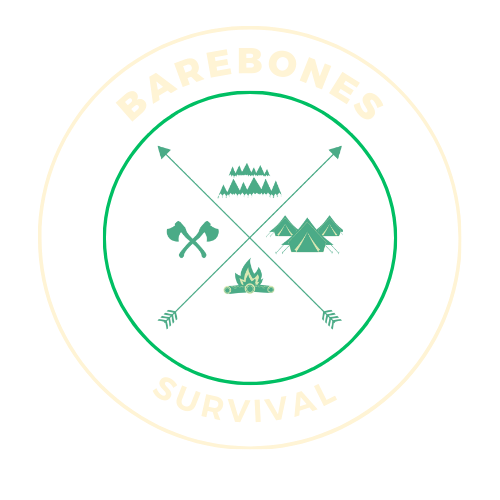© 2023 Barebones Survival. All rights reserved.

Venturing into the great outdoors is an exhilarating pastime that promises adventure, fresh air, and a break from the trappings of modern life. However, nature’s vast beauty comes with an element of unpredictability that requires a basic understanding of survival. This blog post serves as your compass to the essential knowledge and skills needed to stay safe when faced with the challenges of the wild.
The first step in outdoor survival is to appreciate the environment you’re entering. Patience and observation are critical as you map out your surroundings, looking for potential hazards and resources alike. Take note of the weather, the lay of the land, and familiarize yourself with any wildlife that might share your space. Remember, each ecosystem has its own unique characteristics, and your strategy should adapt accordingly.
Before stepping foot outside, it’s invaluable to grasp the rule of threes, a basic principle to prioritize your survival needs:
Understanding this framework will guide your actions and decisions when facing an emergency.
Shelter is your first line of defense against the elements. In adverse weather, exposure can quickly lead to hypothermia or heatstroke. Learn to construct a simple tarp shelter or a debris hut using natural materials found in your environment. Your shelter should keep you dry, regulate temperature, and be properly ventilated to prevent the build-up of toxic gases.
Water is non-negotiable for survival, but it’s not always readily available. Familiarize yourself with locating natural water sources like springs, rivers, or dew, and employ various purification methods to make it potable. Techniques include boiling, chemical treatments, and filtration. Remember, not all water is safe to drink without proper decontamination.
Fire serves multiple crucial purposes in a survival scenario. It provides warmth, morale, a means to cook food, and can even signal for help. Master the art of fire-starting with methods that range from traditional friction-based techniques like bow-drilling and hand-drilling, to modern tools, such as lighters and ferrocerium rods. Ensure you can create a fire under a variety of conditions, including wet and windy weather.
While the human body can survive weeks without food, it will weaken without sustenance. Learning about edible plants, insects, and safe ways to catch and prepare wildlife can be life-saving skills in a survival situation. But always approach this aspect with caution, as consuming the wrong item can exacerbate your predicament.
Getting lost is a common risk when exploring unfamiliar territories. Basic navigation skills using a map and compass, or natural indicators like the position of the sun and stars, are indispensable. Even if you’re not sure of your exact location, keeping a general sense of direction can mean the difference between finding your way back or wandering further astray.
If your situation becomes dire, signaling for rescue is your best bet. Carry with you signaling devices such as a whistle, mirror, or flares. Familiarize yourself with international distress signals and choose open areas devoid of obstacles where your signals can be easily seen.
Injuries are common in outdoor mishaps. Understanding basic first aid can prevent minor wounds from escalating. Your wilderness first aid kit should include items like bandages, antiseptics, and tools for field medical procedures. Prioritize assessing the scene, managing any imminent dangers, and only then provide aid accordingly.
Perhaps the most overlooked survival tool is the human mind. Staying calm, maintaining a positive mental attitude, and being resourceful can significantly enhance your chances of making it out alive. Keep faith in your abilities and always have a survival plan in the back of your mind, well before you need it.
Once you’ve mastered these basics, consider taking more advanced courses in wilderness survival, such as navigation, foraging, and emergency medicine. Knowledge is a survivor’s greatest asset, and continued learning will build upon the foundation you’ve established.
In conclusion, the lure of the wild is powerful, but respect for its inherent risks is non-negotiable. By arming yourself with these fundamental survival skills and knowledge, you’re not only preparing for the worst but also ensuring that your outdoor experiences remain a source of inspiration and joy. Remember, in the grand drama of nature, you are both observer and participant – play your role wisely.